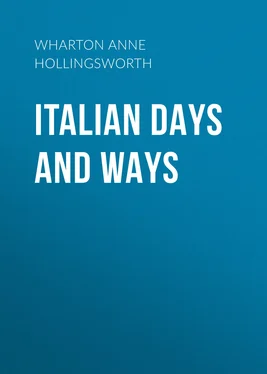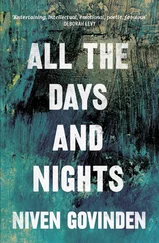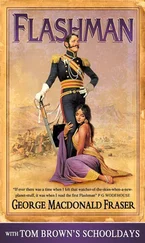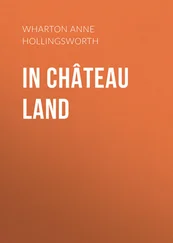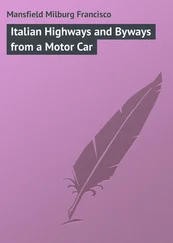Anne Wharton - Italian Days and Ways
Здесь есть возможность читать онлайн «Anne Wharton - Italian Days and Ways» — ознакомительный отрывок электронной книги совершенно бесплатно, а после прочтения отрывка купить полную версию. В некоторых случаях можно слушать аудио, скачать через торрент в формате fb2 и присутствует краткое содержание. Жанр: Путешествия и география, foreign_antique, foreign_prose, на английском языке. Описание произведения, (предисловие) а так же отзывы посетителей доступны на портале библиотеки ЛибКат.
- Название:Italian Days and Ways
- Автор:
- Жанр:
- Год:неизвестен
- ISBN:нет данных
- Рейтинг книги:4 / 5. Голосов: 1
-
Избранное:Добавить в избранное
- Отзывы:
-
Ваша оценка:
- 80
- 1
- 2
- 3
- 4
- 5
Italian Days and Ways: краткое содержание, описание и аннотация
Предлагаем к чтению аннотацию, описание, краткое содержание или предисловие (зависит от того, что написал сам автор книги «Italian Days and Ways»). Если вы не нашли необходимую информацию о книге — напишите в комментариях, мы постараемся отыскать её.
Italian Days and Ways — читать онлайн ознакомительный отрывок
Ниже представлен текст книги, разбитый по страницам. Система сохранения места последней прочитанной страницы, позволяет с удобством читать онлайн бесплатно книгу «Italian Days and Ways», без необходимости каждый раз заново искать на чём Вы остановились. Поставьте закладку, и сможете в любой момент перейти на страницу, на которой закончили чтение.
Интервал:
Закладка:
"Could anything be more delightfully romantic?" exclaims Zelphine, on hearing this.
"Or more horridly uncomfortable?" adds Angela.
These exclamations drew from Mrs. Coxe a detailed and spirited recital of her adventures, which Zelphine heard with the great wide-open eyes of a child listening to a fairy-tale. Women of Mrs. Coxe's age delight in a sympathetic listener. The members of her own party have doubtless heard all of her contes de voyage . She will certainly elect to go with us, and have the advantage of a new and appreciative audience.
March 9th.I opened my windows this morning and stepped out on the marble terrace to enjoy a view of the mountains, which had looked so enchanting by moonlight and were no less beautiful by day. In the garden below a blue gown flitting about among the orange-trees attracted my attention. Angela had evidently brought her charms to bear upon the heart of the padrone , as I heard him say, "Here are scissors for the signorina to cut all the oranges she wishes. In the signorina's own country the oranges do not grow up to the doorstep as with us. Is it not so?"
"No, indeed," said Angela, deftly snipping off a golden ball. "This is a great pleasure. I never cut an orange from a tree but once in my life, and that was in Granada."
Being possessed of an inquiring turn of mind, the padrone asked many questions concerning Granada, and so talking and working industriously Angela soon collected a fine dish of oranges for our breakfast—an unwonted luxury, as in this land of abundance they never give us fruit for our early déjeuner . The carriages were at the door before we had finished our breakfast, and in ours, as though in answer to our desires, sat Mrs. Coxe, provided with a guide-book, lorgnette, lunch, and all the equipment of a good traveller for a long day's drive.
The proprietor announced that he would accompany us as far as Salerno, occupying the seat on the box beside the driver and his little brother. Mrs. Coxe evidently considered this her opportunity for informing herself with regard to the country, its inhabitants, and its productions. She had added not a little to her already large store of information, gained in many lands, when the padrone , to our great regret, left us, with many bows, smiles, and wishes for a "bel giro."
We had the very tip-top of the morning for the beginning of our drive, as we set forth at eight o'clock. The air is soft and clear like that of a May day at home. We can scarcely believe that it is March, and that our friends across the water are still in the grasp of winter, as we left all that behind us when we sailed from New York six weeks ago.
Our way lay between green meadows dotted with purple cyclamen and a small yellow flower much like the English primrose, and in some places through groves of orange-trees covered with golden fruit.
Fortunately for those who take this long drive, the roads are excellent. We drove slowly through the old town of Cava, with its narrow, precipitous streets, and through Salerno, which is upon a bluff overlooking the bay, and commands a noble panorama of sea and shore. When, however, we reached the plain, our horses set forth at a brisk pace. There was not much to be seen here except acres of fennel, artichoke, and a bean, now covered with white blossoms, which I believe is used chiefly for feeding the cattle. Even this road through a flat country is not without a touch of picturesqueness, as it is in many places bordered by gnarled sycamores twisted into the most weird and grotesque shapes. Between these trees a peasant woman was walking, bearing upon her head an immense brush-heap, which was probably her winter firewood. Zelphine and Angela had their kodaks with them, of course, and begged the driver to stop and allow them to get a snap-shot, which he did, crying out, "Ecco, ecco, signora!" The woman stopped obediently, and stood like a statue, in a natural pose full of grace and strength. She was evidently pleased to have her picture taken, as these peasants always are, especially if a few soldi are thrown in to seal the contract. If the picture is good you shall have one, as it will give you a characteristic bit of this Southern Italian life.
Here women young and old are to be seen working in the fields with the men, driving ox-carts, walking beside them, and bearing burdens that seem far too heavy for any woman's shoulders. Although the land seems fertile, the people are evidently very poor, the villages small, and the houses comfortless.
We should have liked to ask the driver some questions about the products of the soil, the peasants, and their lives, but neither he nor his little brother, who was on the box beside him, adapted themselves gracefully to the restrictions of our vocabulary—there is, we find, a great difference in drivers in this respect. At Battipaglia, a railroad station and the most considerable town on the route, we changed horses and drivers also. This latter substitution we found was to our advantage, as the second vetturino proved to be a better linguist than his predecessor, which enabled us to continue our interrupted studies in agriculture and political economy. The new driver was serviceable also in other respects. When we came upon a field of narcissus, he stopped the carriage in order to allow us the pleasure of gathering the fragrant blossoms, besides bringing us handfuls of flowers, the largest bunch of course being laid at Angela's feet. We are quite sure that he considers her the living image of the pictures of the Blessed Virgin, although he is too discreet to say so.
Angela was charming to-day, in a blue suit and a white shirt-waist, but the March sun was so hot that by the time we reached Pæstum it had taken all the color out of the crown of her pretty blue hat.
As there is no inn at Pæstum we ate our luncheon by the roadside, stopping under the shade of a tree where a peasant was enjoying his siesta, his oxen being tethered near by. Zelphine is enthusiastic over the beauty of these gentle creatures, with their soft, kindly brown eyes, and says that she is sure that Homer, when he wrote of his ox-eyed maidens, had just such a one in mind as she was feeding from her hand. She made so pretty a picture as she stood beside the great white ox, feeding him daintily with bean-blossoms, that Angela tried to get a snap-shot of her, but that provoking ox—the slowest of all animals—took it into his head to move at the critical moment.
The country seemed more level and marshy as we drew near Pæstum, although on the left there rose the spur of a mountain range, on one of whose heights are the ruins of the hillside fortress of Capaccio Vecchio. This town was founded by the inhabitants of Pæstum when they were driven from their city by the Saracens in the ninth century.
To our surprise, we saw herds of buffalo grazing in the fields, much smaller and different in other respects from the American bison. Our driver told us that this small black buffalo is to be found near the coast in many parts of Italy, and is often seen on the Campagna near Rome. From the number of calves in some of the fields we are inclined to think that the young buffaloes are used for food. I noticed several of the well-grown animals drawing carts, sometimes harnessed with the white oxen.
We caught a glimpse of the old wall and gate with the sea beyond, and then in a moment the temples were in full view. Nothing could be more impressive than those magnificent ruins on that lonely plain, sharply outlined against the blue sky. The Temple of Neptune, with its thirty-six fluted Doric columns, its double columns inside, and its noble, almost perfect façade, is a superb example of Greek architecture of the fifth century B.C. The stone of which the temple is built is a kind of travertine, to which the passing years have imparted a creamy, mellow tone. The Temple of Ceres is less complete than that dedicated to Neptune, although it belongs to the same period. The gate of the town opening out toward the sea and the old wall adjoining it are wonderfully preserved. These with the temples of Neptune and Ceres and the so-called Basilica are all that remain of this settlement made by Greeks from Sybaris about 600 B.C. Two days we have passed with the ancients, yesterday in a city where "the earth, with faithful watch, has hoarded all," and to-day in a town not much older than Pompeii, where the conquering Saracens and Normans and the devastating elements have left nothing to tell the tale of the daily life and habits of the Greeks who made their home upon these shores.
Читать дальшеИнтервал:
Закладка:
Похожие книги на «Italian Days and Ways»
Представляем Вашему вниманию похожие книги на «Italian Days and Ways» списком для выбора. Мы отобрали схожую по названию и смыслу литературу в надежде предоставить читателям больше вариантов отыскать новые, интересные, ещё непрочитанные произведения.
Обсуждение, отзывы о книге «Italian Days and Ways» и просто собственные мнения читателей. Оставьте ваши комментарии, напишите, что Вы думаете о произведении, его смысле или главных героях. Укажите что конкретно понравилось, а что нет, и почему Вы так считаете.
